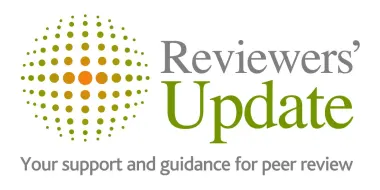Reviewers' Update
Information for reviewers about relevant Elsevier and industry developments, support and training.

Exploring the history, importance and benefits of being inclusive

By Katie Eve
September 20, 2021
Latest articles in Reviewers' Update
Peer review
Keep in touch with Reviewers' Update
See the latest stories and advice and find out about industry developments, policies and initiatives of interest to our reviewers.






























